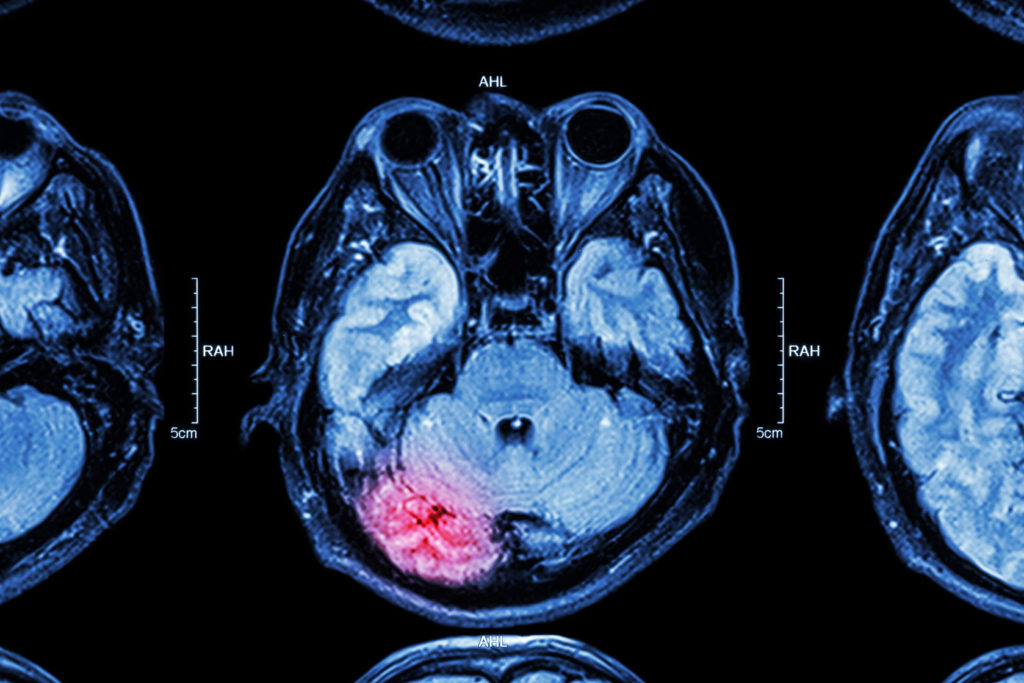What to Know About Head Injuries
Head injuries can range from a bonk on the head to a severe trauma. This type of injury can come from a scrape on the scalp, break in the skull or damage to the brain. Even though it may seem minor, any harm to the head should be taken seriously. Keep reading to learn more about head injuries and their symptoms.
What Causes Head Injuries?
This type of trauma occurs any time the head receives a scrape, bruise or other type of damage. The most common cause of head injuries come from:

- Shaking
- Car Accidents
- Falls
- Physical Assault
- Contact Sports
Though brain injuries from shaking typically occur in infants, adults can experience this too.
What Are the Types of Head Injuries?
As mentioned above, any type of damage done to the head and brain is extremely serious. Here are some of serious types of head injuries.
- Traumatic Brain Injury (TBI): TBI occurs when there has been a mild to significant blow to the head that disrupts the normal function of the brain. More often than not, these hits to the head result in a concussion, which have a strong impact on almost every function of the human body.
- Chronic Traumatic Encephalopathy (CTE): Chronic traumatic encephalopathyis a progressive degenerative disease which afflicts the brain of people who have suffered repeated concussions and traumatic brain injuries, such as athletes who take part in contact sports, members of the military and others. This disease develops when persistent trauma to the cranium occurs over years or decades.
- Concussions: A concussion occurs when the brain bounces against the hard walls of the skull. Though loss of function and consciousness is temporary, repeated hits can lead to more permanent damage, such as TBI and CTE.
- Edema: In any injury, swelling happens around tissue, but it is especially dangerous when it happens in the brain. The skull cannot expand to stretch to make room for the swelling and builds pressure around the brain, leading the brain to press against the skull.
What Are the Symptoms of Head Injuries?
Symptoms of head injuries can happen immediately or may take a few days to show. This is why it is important to watch for new or worsening problems. Here are common red flags for minor and major injuries:
Minor Symptoms:
- Headaches
- Lightheadedness
- Spinning Feeling
- Mild Confusion
- Nausea
Major Symptoms:
- Loss of Consciousness
- Seizures
- Vomiting
- Balance Problems
- Disorientation
- Loss of Muscle Control
- Changes in Mood
- Memory Loss
- Persistent Headaches
Knowing the different types of head injuries and their symptoms can help prevent worsening and severe problems. Hitting your head, whether minor or major, can lead to memory and cognitive function disorders that can impact the rest of your life. If you’ve ever hit your head, tracking your memory with MemTrax can help you stay on top of your brain health. Check out our free test today and sign up for a year of tests and tracking!
About MemTrax

MemTrax is a screening test for the detection of learning and short-term memory issues, particularly the type of memory problems that arise with aging, Mild Cognitive Impairment (MCI), dementia and Alzheimer’s disease. MemTrax was founded by Dr. Wes Ashford, who has been developing the memory testing science behind MemTrax since 1985. Dr. Ashford graduated from the University of California, Berkeley in 1970. At UCLA (1970 – 1985), he attained an M.D. (1974) and Ph.D. (1984). He trained in psychiatry (1975 – 1979) and was a founding member of the Neurobehavioral Clinic and the first Chief Resident and Associate Director (1979 – 1980) on the Geriatric Psychiatry in-patient unit. The MemTrax test is quick, easy and can be administered on the MemTrax website in less than three minutes. www.memtrax.com
